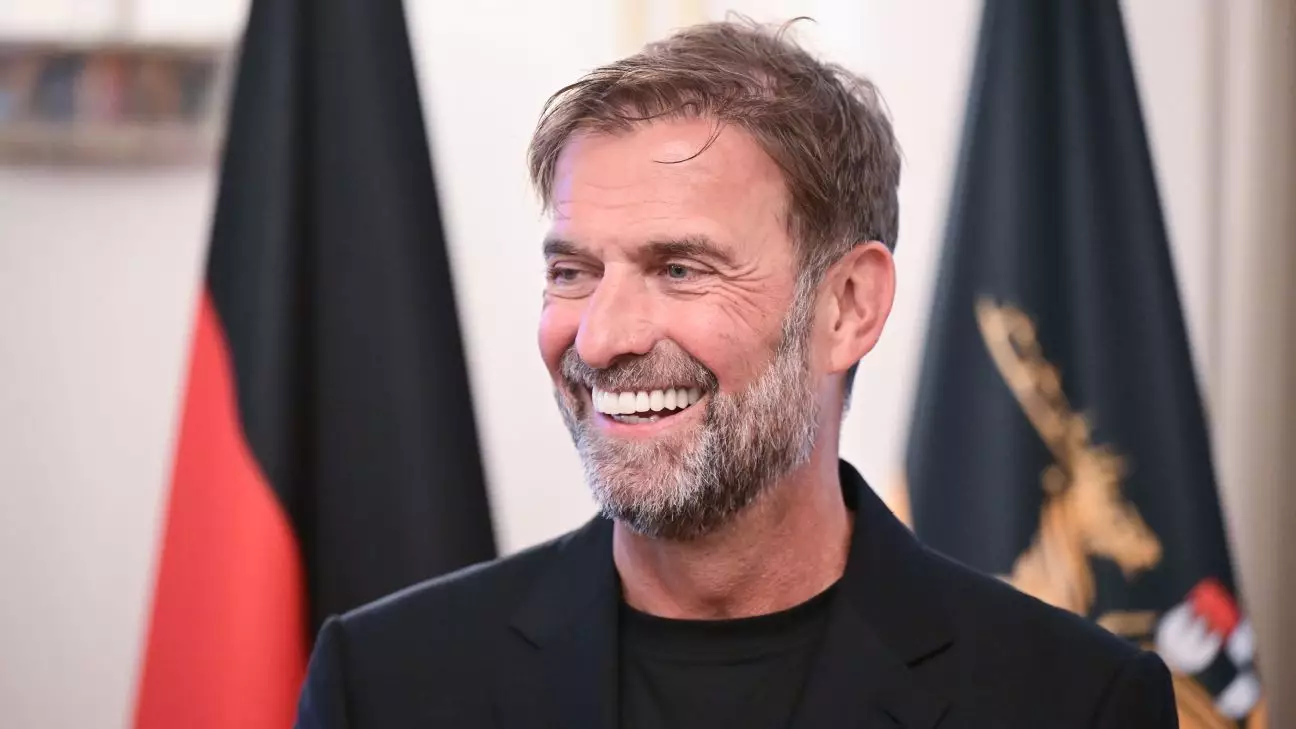Jürgen Klopp is a name that resonates with football fans across the globe. His vibrant personality and tactical acumen brought him success at Borussia Dortmund and, more recently, at Liverpool. However, his return to the German football scene in a new capacity has sparked debates and discussions that delve into the values and ethics surrounding modern football.
The Enduring Popularity of Klopp in Germany
Even though it has been almost ten years since Klopp worked solely within the confines of German football, his presence is unmistakable in the media landscape. His jovial demeanor and infectious laughter have become synonymous with various commercial ventures, ranging from financial services to sporting goods. The financial firm Deutsche Vermögensberatung capitalizes on his charm, promoting their brand through his well-recognized face. Meanwhile, his endorsement deals span numerous industries, reinforcing the notion that Klopp is more than just a coach; he is a brand unto himself.
He has recently taken a role as the “global head of soccer” for Red Bull, a surprising choice to many. Known for its controversial sports marketing approach, Red Bull has faced skepticism from traditional football fans in Germany. Many were left to ponder why someone like Klopp would align himself with a brand that has polarizing tendencies among the fanbase. His decision marks a significant chapter in his career, leaving many to question the motivations behind this lucrative opportunity.
The rise of RB Leipzig, a key player in the Red Bull football network, began in 2009 under contentious circumstances. Their model of operation, which effectively bypasses the 50+1 ownership rule that governs traditional German football clubs, has caused friction within the football community. This unconventional birthright has ingrained a sense of distrust among fans who value the traditional fabric of the sport. For Klopp, a figure long cherished for representing the people, this association could tarnish his legacy.
Indeed, the German media has been unyielding in their skepticism. The cover of Kicker magazine, featuring Klopp’s visage with the headline “Kultur-Schock,” encapsulates the unease that many supporters feel regarding his new role. An astonishing 72% of readers from a Kicker online poll voiced disapproval of his decision to join Red Bull. This reaction reflects the profound sense of attachment that fans have to their clubs’ traditions and principles.
It’s intriguing to juxtapose these reactions with the sentiments expressed in England, where the general attitude has been markedly supportive. In England, Klopp is viewed as someone deserving the freedom to pursue his ambitions, contrasting sharply with the German perspective, which remains tethered to historical sentiments and loyalties.
The Role of Traditionalism in Modern Football
In many ways, the backlash against Klopp’s new position serves as a reminder of the ongoing struggle between tradition and modernity in football. Fans in Germany treasure their clubs’ communal and historical significance, often feeling alienated by the commercialization of the sport. The traditionalist mindset suggests that clubs should primarily serve their communities rather than operate like businesses beholden to profit and branding imperatives.
Conversely, figures like former Eintracht Frankfurt sporting chief Fredi Bobic have defended Red Bull’s operational model, asserting that modern structures are necessary for survival and growth in an evolving football landscape. He provocatively suggests that those clinging to traditional views might be stuck in the past, further complicating the dialogue surrounding this transformation.
Klopp’s move serves as a striking case study of the broader challenges facing football. While he appears excited about the opportunities that lie ahead, especially in collaborating with familiar faces from his past, the road is fraught with complexities. German football fans often view success through the lens of community-focused values, and Klopp’s association with an entity that embodies commercial power could dilute the essence of his storied career.
Moreover, while Klopp navigates this new landscape, the performance of teams like the national side under Julian Nagelsmann provides optimism. The inclusion of less conventional players based on merit rather than reputation reflects a significant shift in mentality in the German football hierarchy. Still, as with any major upheaval, the long-term effects of Klopp’s departure from traditional roles, along with the implications of his new alliance with Red Bull, will take time to fully manifest.
Jürgen Klopp is at a pivotal moment, stepping into uncharted territory that will demand both flexibility and adaptability. The reactions to his decisions showcase the deep-rooted tensions between innovation and tradition in the sport. As Klopp embarks on this new journey, it remains to be seen how he will navigate his expanded role while remaining true to the values that endeared him to fans in the first place. Ultimately, his future choices could either fortify his status as a transformative figure in football or redefine him entirely amidst the complexities of modern sports.


Leave a Reply